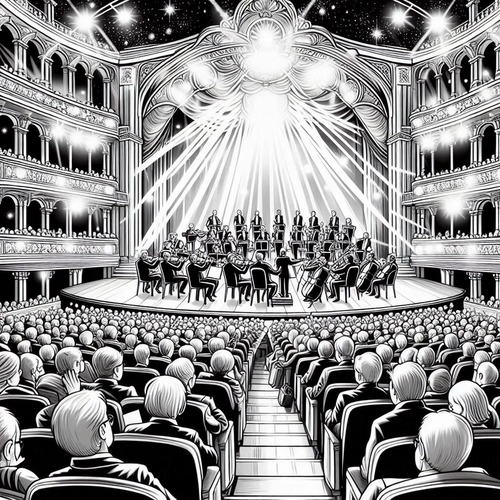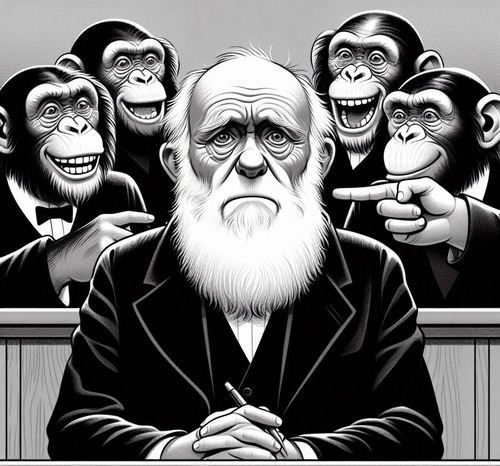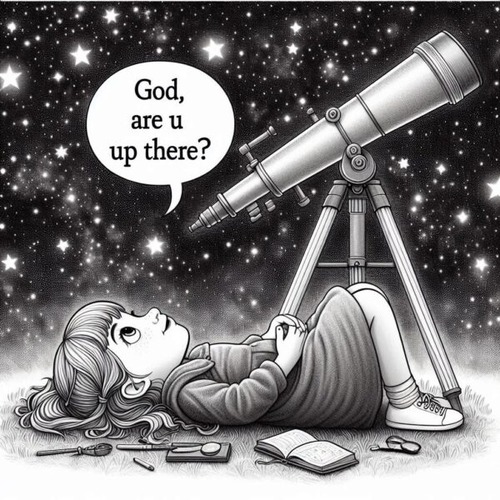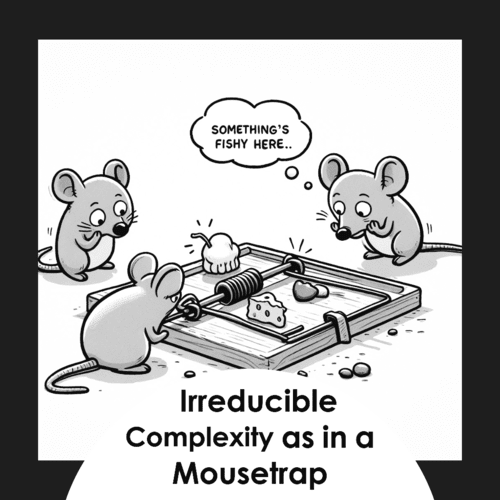The Fine-Tuning Argument: Pointing to a Designer
The Cosmic Symphony
Imagine you’re seated in a grand concert hall, the vaulted ceilings and plush velvet curtains enveloping you in an atmosphere of reverence and anticipation. Suddenly, the first notes ring out, and you’re transported into a rich tapestry of sound, woven by a magnificent orchestra. Each harmony, each crescendo unfolds with such exquisite precision, it seems as if the music itself exists independently of any composer or conductor—a living, breathing entity born from the very essence of the instruments.
Now, imagine this breathtaking symphony as a metaphor for the universe itself—an intricate, awe-inspiring tapestry of laws and forces, woven together in a harmonious dance of cosmic proportions. Could such a universe, so vast and yet so finely balanced, so complex and yet so perfectly tuned for the flourishing of life, truly exist without the guiding hand of a divine Composer?
This is the profound question posed by the fine-tuning argument for the existence of God: If the grandeur of the orchestra cannot be divorced from the vision of the maestro who composed it, how much more—infinitely more—illogical it must rightfully sound to us that this masterpiece of a cosmos we inhabit wasn’t crafted by an unseen, transcendent hand? As we delve into this philosophical inquiry, we are invited to ponder the possibility that the universe we inhabit, in all its resplendent majesty, is not merely a product of chance, but rather, a symphony composed by the mind of an eternal Creator.
What is Fine-Tuning? Fine-tuning refers to the precise balance and interplay of the fundamental forces and constants of the universe. These constants govern everything from the strength of gravity to the charge of an electron. If any of these constants were altered by even a hair’s breadth, the universe as we know it would not exist. Life, in all its complexity, seems to be facilitated by a universe that is ‘just right’—a concept reminiscent of Goldilocks finding the perfect bowl of porridge.
The Fine-Tuning of the Universe: A Powerful Argument for God
The fine-tuned nature of the universe continues to perplex scientists and philosophers alike. As our understanding of the cosmos deepens, the evidence for its exquisite calibration becomes even more striking, hinting at the work of an intelligent designer. Here are the key arguments for fine-tuning, bolstered by the latest discoveries and developments:
- The Improbability of Chance: Recent calculations by scientists such as Roger Penrose and others have highlighted the staggering improbability of the universe randomly taking a form compatible with life. The odds are so astronomically low—often compared to a cosmic lottery jackpot—that it defies any reasonable expectation of chance. For instance, the initial low-entropy conditions of the universe required for the formation of galaxies, stars, and ultimately, of life, are incredibly specific and, therefore, highly unlikely to arise randomly.
- The Specificity of Constants: Our universe operates under a delicate balance of fundamental constants, such as the strength of gravity, the strong and weak nuclear forces, and the values of certain particle masses. Even a slight variation in these constants would render the universe inhospitable to life as we know it. Recent findings about tiny particles like the Higgs boson show their exact properties must be finely tuned in order for atoms to be stable and for the complex chemistry required for life to exist.
- The Order in Chaos: Despite the apparent chaos and randomness in the cosmos, there exists an underlying order and coherence that suggests a purposeful design. This order is evident in the intricate patterns found in nature, such as the fractal geometry of galaxies, the harmonious orbits of celestial bodies, and the complex, yet organized, structures of biological systems. Recent advancements in fields such as chaos theory and complexity science have shed light on the remarkable order that emerges from seemingly chaotic systems, further hinting at an intelligent creator.
- The Anthropic Principle: This principle, which has gained significant traction in recent years, posits the universe must be compatible with the conscious beings that observe it. In other words, the universe is fine-tuned because we, as observers, exist to witness it. This principle suggests the laws of physics and the fundamental constants are calibrated in such a way as to permit the emergence of intelligent life, capable of comprehending the cosmos. Recent discoveries in cosmology and astrobiology have reinforced the notion that our universe is exquisitely suited for the development of life.
- The Unlikelihood of Naturalistic Explanations: While theories such as the multiverse hypothesis attempt to provide a naturalistic explanation for the fine-tuning, they often fail to withstand scrutiny and resort to untestable speculation. The multiverse, for instance, suggests our universe is just one of an infinite number of universes, each with different physical laws and constants, and that we happen to exist in the one that is fine-tuned for life. However, this theory lacks empirical evidence and raises more questions than it answers, such as the nature of the mechanism that generates these parallel universes and the apparent fine-tuning of the multiverse itself.
As our scientific understanding continues to evolve, the evidence for fine-tuning becomes increasingly compelling, challenging the notion of a purely naturalistic and random universe. The exquisite calibration of the cosmos, the specificity of its constants, and the underlying order amidst chaos all point to the handiwork of an intelligent designer—a creator who has set the stage for the emergence of life and conscious observers to marvel at the grand cosmic symphony.
Think about this: The fine-tuning argument is not just about numbers and forces; it’s about the awe-inspiring realization our universe is a masterpiece of complexity and order. It invites us to consider the possibility of a Master Artist who, with intention and wisdom, set the cosmos in motion. Whether one subscribes to this view or not, the fine-tuning of the universe remains one of the most profound mysteries, beckoning us to explore the depths of existence and perhaps, in the process, encounter the divine.
Conclusion: The evidence of the universe’s exquisite fine-tuning is overwhelming, and it demands a profound response. The fine-tuning argument presents a powerful philosophical case that points directly towards the existence of an intelligent, transcendent Creator. Dismissing such precise calibrations as mere random chance amounts to a wilful rejection of logic and reason. The fine-tuning is a resounding cosmic symphony that echoes the handiwork of a grand Conductor, whose purposeful design and mastery over the fundamental laws of nature allowed the miracle of life to unfold.
To gaze upon the majesty of this universe is an open invitation—nay a solemn call—to recognize the fingerprints of a divine Mind and to embrace the humbling realization we are not mere accidental by-products of blind forces, but beloved creatures born out of an intentional act of creation. The fine-tuning argument demands we approach the cosmos with a sense of awe and reverence, seeing it not as a series of fortunate coincidences, but as a masterfully crafted work of sacred art.
Related Reads:
- Aquinas’ Quinque Viae: Timeless Arguments for the Existence of God
- The Universal Moral Oughts: Signposts to the Divine
- The Kalam Cosmological Argument: A Quest for Cosmic Beginnings
- The Teleological Argument: Unveiling Design in a Universe of Wonder
- The Fine-Tuning Argument: Can Orchestras Compose and Conduct Themselves?
Editor's Pick

‘Sell Everything You Have…’: Are We To Do So Literally?
When Jesus encountered the rich young ruler in Matthew 19:21, His words cut through with startling clarity: “If you want [...]

Why Jesus Said ‘It’s Better I Go Away’…
THE SUPERIOR GIFT OF THE HOLY SPIRIT “Nevertheless, I tell you the truth: it is to your advantage that I [...]

What About Those Who’ve Never Heard the Gospel?…
WILL GOD SHOW THEM MERCY ON JUDGEMENT DAY? Few questions tug at the Christian’s heart like this one. Picture the [...]

Cities of Refuge: Foreshadowing Our Safe Haven in Jesus
Picture this: A man is chopping wood with his neighbour when the axe head flies off the handle, striking and [...]

Testament to Design: The Engineering Marvel of Elephants
Picture an African elephant delicately plucking a single acacia leaf with the tip of its trunk, then moments later using [...]

Blue Whales: Mammoth Icons of Intelligent Design
Imagine an animal so massive its heart alone weighs as much as a small car, yet so precisely engineered it [...]

Do Unbelieving Kids Disqualify Church Leaders?
REFORMED PERSPECTIVES ON 1 TIMOTHY 3 AND ELDER QUALIFICATIONS Every pastor knows the heartbreak. A faithful elder who has served [...]

Why Did God Kill Onan? Wasn’t the Punishment Disproportionate?
The story of Onan in Genesis 38 troubles many. Why would God strike down a man for what seems like [...]

Is God Preparing Me for Ministry? How May I Know for Sure?
The question haunts many faithful believers. You’re serving faithfully in your local church, perhaps teaching Sunday school or leading a [...]

Ephesians 1:13: Was the Spirit’s Indwelling Promised of Old?
When Paul declares believers are “sealed with the promised Holy Spirit” in Ephesians 1:13, one word jumps off the page: [...]
SUPPORT US:
Feel the Holy Spirit's gentle nudge to partner with us?
Donate Online:
Account Name: TRUTHS TO DIE FOR FOUNDATION
Account Number: 10243565459
Bank IFSC: IDFB0043391
Bank Name: IDFC FIRST BANK






